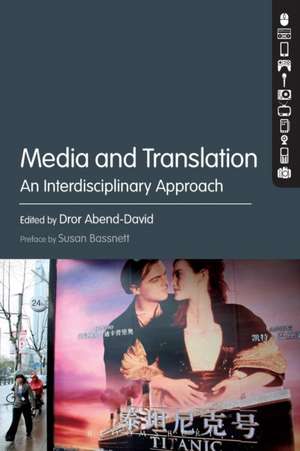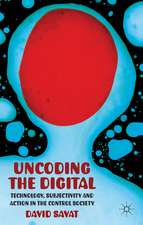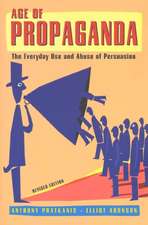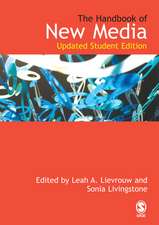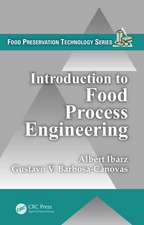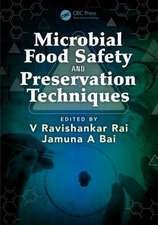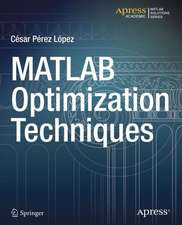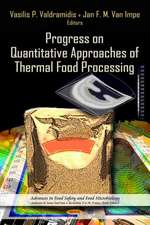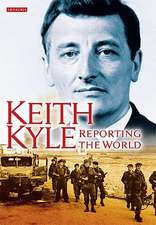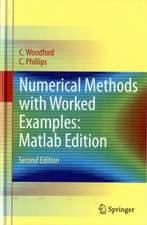Media and Translation: An Interdisciplinary Approach
Editat de Dr Dror Abend-Daviden Limba Engleză Paperback – 27 ian 2016
| Toate formatele și edițiile | Preț | Express |
|---|---|---|
| Paperback (1) | 260.73 lei 6-8 săpt. | |
| Bloomsbury Publishing – 27 ian 2016 | 260.73 lei 6-8 săpt. | |
| Hardback (1) | 777.06 lei 6-8 săpt. | |
| Bloomsbury Publishing – 24 sep 2014 | 777.06 lei 6-8 săpt. |
Preț: 260.73 lei
Preț vechi: 332.87 lei
-22% Nou
Puncte Express: 391
Preț estimativ în valută:
49.90€ • 54.18$ • 41.91£
49.90€ • 54.18$ • 41.91£
Carte tipărită la comandă
Livrare economică 23 aprilie-07 mai
Preluare comenzi: 021 569.72.76
Specificații
ISBN-13: 9781501317767
ISBN-10: 1501317768
Pagini: 392
Dimensiuni: 152 x 229 x 25 mm
Greutate: 0.52 kg
Ediția:NIPPOD
Editura: Bloomsbury Publishing
Colecția Bloomsbury Academic
Locul publicării:New York, United States
ISBN-10: 1501317768
Pagini: 392
Dimensiuni: 152 x 229 x 25 mm
Greutate: 0.52 kg
Ediția:NIPPOD
Editura: Bloomsbury Publishing
Colecția Bloomsbury Academic
Locul publicării:New York, United States
Caracteristici
Discusses 'other' media such as news-casting, commercials, video games, web-pages and electronic street signs
Notă biografică
Dror Abend-David is a Lecturer at the department of Languages, Literatures and Cultures at the University of Florida. He is a scholar of Media and Translation, and the author of Scorned My Nation: A Comparison of Translations of The merchant of Venice into German, Hebrew and Yiddish (2003). He received his doctorate in Comparative Literature from New York University (2001), and has published extensively on Translation in relation to Media, Literature, and Jewish Culture.
Cuprins
AcknowledgementsEditor's Note - Dror Abend-David, University of Florida, USAPreface - Susan Bassnett, University of Warwick, UKSection I - Film Translation and Adaptation- An introductory noteChapter 1: Multilingual Films and Integration? What role does Film Translation Play? By Christine Heiss, University of Bologna, Italy Chapter 2: Accounting for Multilingual Films in Translation Studies. Intratextual translation in dubbingBy Patrick Zabalbeascoa and Elena Voellmer, Pompeu Fabra University, SpainChapter 3: A South African take on the gangster film genre: translating Tsotsi and Hijack Stories for an international audienceBy Zoë Pettit, University of Greenwich, UKSection II - Subtitling and Dubbing- An introductory noteChapter 4 Insights into the false orality of dubbed fictional dialogue and the language of dubbingBy Rocío Baños, University College London, UKChapter 5: Dubbing as a Formal Interference - Reflections and ExamplesBy Emilio Audissino, University of Southampton, UKSection III - Media and Computer Translation- An introductory noteChapter 6: Live Subtitling with Speech Recognition - How to pinpoint the challenges?By Aline Remael, Luuk Van Waes, & Mariëlle Leijten, University of Antwerp, BelgiumSection IV - Between Literary and Media Translation- An introductory noteChapter 7: From Hybridity to Dispersion: film subtitling as an adaptive practiceBy Michael Raine, Western University, Canada Chapter 8: When Fantasy Becomes a Real Issue: On Local and Global Aspects of Literary Translation/Adaptation, Subtitling and Dubbing Films for the YoungBy Erga Heller, Kaye Academic College of Education, Beer Sheba, IsraelSection V - Translation, Communication and GlobalizationChapter 9: The Eyes and Ears of the Beholder? Translation, Humor and PerceptionBy Delia Chiaro, University of Bologna, ItalyChapter 10: Teaching Trauma in (and Out of) Translation: Waltzing with Bashir in EnglishBy Alison Patterson & Dan Chyutin, University of Pittsburgh, USA Section VI - Global News and Politics- An introductory noteChapter 11: Mediation in News Translation: A critical analytical frameworkBy Li Pan, Guangdong University, ChinaChapter 12: accent and Prejudice: Israelis' Blind Assessment of Al-Jazeera English News ItemsBy Tal Samuel-Azran, Amit Lavie-Dinur & Yuval Karniel, Interdisciplinary Center in Herzliya, IsraelSection VII - Promotions, Commercials Tweets and Minisodes- An introductory noteChapter 13: Trailers and promos and teasers, oh my! Adapting television paratexts across culturesBy Chiara Bucaria, University of Bologna at Forlì, ItalyChapter 14: Mediation of Cultural Images in Translation of Advertisements - Alterations and Cultural PresuppositionsBy Ying Cui and Yanli Zhao, Shandong University, China AbstractsAbout the Authors (in order of appearance):Index
Recenzii
In addition to shedding new light on established forms of media translation, this volume presents research on more recent features of the multilingual media landscape, such as live subtitling with speech recognition, promotional trailers, and fan-generated spin-offs. With its broad cultural scope and its striking combination of aesthetic, linguistic, political, socio-economic and technological perspectives, the book takes the reader on an exciting intellectual adventure. Media and Translation should appeal to a broad readership in the Humanities and the Social Sciences generally, and to the Media Studies and Translation Studies communities in particular, convincingly demonstrating how much ground they share in today's intensely globalised, media-dominated and multilingual world.
In a babel of disciplinary voices, this book provides a thoughtful selection of essays that evidence the complexity of media translation and the wide variety of approaches it inspires. While there is a practical thread running through the whole book, the emphasis here is on understanding and theorizing, making it an essential contribution to translation studies.
Organized in seven parts including acknowledgments, preface, editor's note, author biographies, and index, the book is the brainchild of a course created five years ago by the editor himself at Tel Aviv University, touted for producing top-notch scholarship. At some point I would like to see reference librarians, language scholars, translators, and interpreters as well as literary critics organizing workshops on the topic of media and translation in the 21st century and dissecting this book's contents.
Indeed, the book is remarkably unique, at least within AVT scholarship, in celebrating [multidisciplinary] by combining experts, theoretical frameworks and methodologies from an impressively wide variety of academic fields . Bringing together so many different aspects of the translation-media interface is a commendable achievement.
In the preface to this volume, Susan Bassnett explains that the essays in this collection exemplify a new trend of interdisciplinary research, which is the result of a changing, more globalised world, and she welcomes the diverse approach adopted in this volume. I agree. This is an essential contribution to Media Studies and Translation Studies, and it will surely attract a diverse audience, including academics and students alike.
.this collection of essays provides a fascinating, broad and varied contribution to the field of audiovisual translation studies, pushing its boundaries towards new research avenues, in the name of true and systematic interdisciplinary.
In a babel of disciplinary voices, this book provides a thoughtful selection of essays that evidence the complexity of media translation and the wide variety of approaches it inspires. While there is a practical thread running through the whole book, the emphasis here is on understanding and theorizing, making it an essential contribution to translation studies.
Organized in seven parts including acknowledgments, preface, editor's note, author biographies, and index, the book is the brainchild of a course created five years ago by the editor himself at Tel Aviv University, touted for producing top-notch scholarship. At some point I would like to see reference librarians, language scholars, translators, and interpreters as well as literary critics organizing workshops on the topic of media and translation in the 21st century and dissecting this book's contents.
Indeed, the book is remarkably unique, at least within AVT scholarship, in celebrating [multidisciplinary] by combining experts, theoretical frameworks and methodologies from an impressively wide variety of academic fields . Bringing together so many different aspects of the translation-media interface is a commendable achievement.
In the preface to this volume, Susan Bassnett explains that the essays in this collection exemplify a new trend of interdisciplinary research, which is the result of a changing, more globalised world, and she welcomes the diverse approach adopted in this volume. I agree. This is an essential contribution to Media Studies and Translation Studies, and it will surely attract a diverse audience, including academics and students alike.
.this collection of essays provides a fascinating, broad and varied contribution to the field of audiovisual translation studies, pushing its boundaries towards new research avenues, in the name of true and systematic interdisciplinary.
